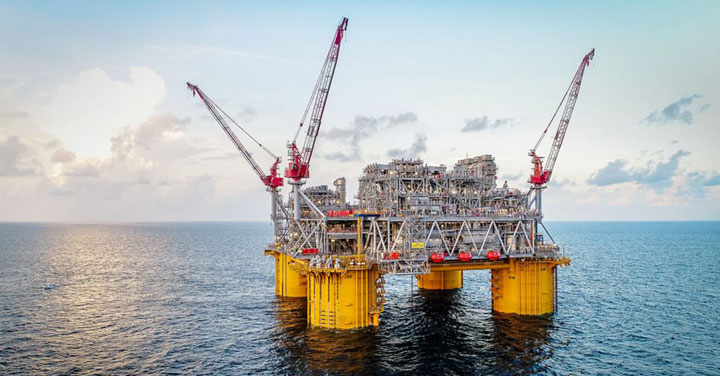Exploration, development and production
Our Upstream organisation explores for, develops and produces crude oil, natural gas and natural gas liquids. Our Integrated Gas organisation manages our liquefied natural gas (LNG) activities and the production of gas-to-liquid (GTL) fuels and other products.
We need to discover resources and negotiate their extraction with governments and other stakeholders before operations can begin. We do not always find the oil and gas that we are looking for and may have to write off those early investment costs. When we find resources, we expect to invest significant sums in the early development stages of projects. There is a lead time before we realise any revenues as projects move through the development phase and into production. These projects are often long term in nature, spanning decades.
We are exposed to market risks, among others, over the lifetime of a project and this impacts the taxes we pay. Low oil or natural gas prices may sometimes mean that upstream activities incur losses even during a production phase.
Upstream and Integrated Gas operations typically bring significant employment and the infrastructure investments we make are shown in the tangible assets reported.
Tax in Upstream and Integrated Gas
Governments often have specific oil and gas fiscal regimes with tax rates for these projects being higher than those for other industries. Upstream and Integrated Gas projects have phases and our total tax fluctuates depending on the phase of a project.
Taxes through the business cycle
Our contributions to a country are not always found in disclosures of corporate income taxes because we may make payments as a share of the oil and natural gas that we produce, through royalties or indirect taxes.

Appomattox, a deep-water oil and gas development and Shell’s largest floating platform in the Gulf of Mexico
 Message from the Chief Financial Officer
Message from the Chief Financial Officer
 Approach to tax
Approach to tax
 Special topics
Special topics
 Our tax data
Our tax data
